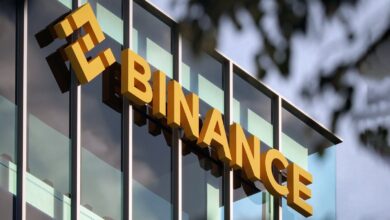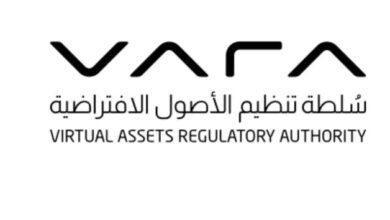Bahrain Fintech and Blockchain ecosystem grows to new heights

Digitization and Fintech ecosystems are seeing massive growth in a matter of weeks as opposed to years. As a result of COVID-19 in the Middle East, the financial services sector in particular has witnessed a long-needed acceleration of its digital transformation efforts – presenting an opportunity for traditional brick-and-mortar banks to seek greater collaboration with FinTech firms that have new ideas.
Driven by initiatives like the Central Bank of Bahrain’s Regulatory Sandbox – which gives firms with innovative ideas the freedom to experiment in a dedicated startup-friendly environment – blockchain and distributed ledger technology is set to become an increasingly important part of Bahrain’s business ecosystem. This is particularly relevant at a time when demand for virtual services is constantly rising during the COVID-19 pandemic. There are many uses for the technology across the region – from infrastructure support to finance and smart appliances – and according to Wintergreen Research, the market value of the blockchain industry will hit $60 billion by 2024.
To help catalyse this growth, Bahrain has focused on introducing a raft of new legislation and future-proofing existing frameworks to build a truly digital ecosystem. This has largely been led by the Central Bank of Bahrain (CBB), which among other landmark reforms launched a dedicated policy on cryptocurrency to control operations within the local market – resulting in a surge in interest from regional investors and startups operating in this space. The CBB has also been pivotal in introducing open banking rules which require financial institutions to share account data with third party providers, creating new opportunities to leverage blockchain platforms and tools in building data sharing schemes.
At a wider level, Bahrain is working to enable digital business across borders by putting in place essential contract frameworks accounting for the past decade’s shift to digital. Just this year, the Kingdom became the first country in the Middle East to ratify a key United Nations treaty ensuring that electronic contracts are as equally enforceable as their traditional paper-based equivalents. As financial institutions seek to move their operations to the digital space, these macro-level regulatory reforms are equally as important as those focusing on empowering growth in specific sectors.
Yet as FinTech firms across the region innovate, and customers show a clear demand for digitally led products and services, many banks continue to lag behind. According to a June 2019 survey by PwC, 47% of global financial services companies wanted to collaborate with a FinTech firm, but Deloitte research suggests that just 15% of organisations consider themselves to be digital leaders – and they are missing out on a tremendous opportunity. New technologies not only present opportunities for customers to gain greater access to services, but for banks to make faster decisions using systems such as Bahrain’s blockchain-based Electronic Know Your Customer (eKYC) project. The national digital database – the first of its kind in the Arab world – uses distributed ledger technology to authenticate identities, meaning banks can make decisions more quickly without being slowed down the traditional bureaucratic challenges of sluggish paper-based systems. The implementation of such systems relies on close collaboration between the government and the private sector, and according to a recent report by think tank Derasat, the appetite for blockchain-based solutions in the region is only set to grow substantially in the next five years – allowing “new ways of doing business and serving markets” well into the future.
The sudden shock of Coronavirus on global financial systems has become a catalyst for banks to take the leap into a new era of digitalisation. With investment in Gulf-based FinTech startups reportedly set to reach $2 billion over the next 10 years, being digital is no longer optional. The financial champions of tomorrow will be determined by their readiness to adapt and transform for the next global crisis.





